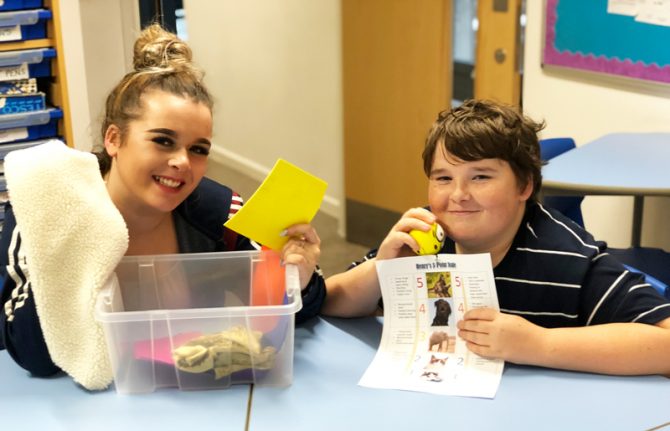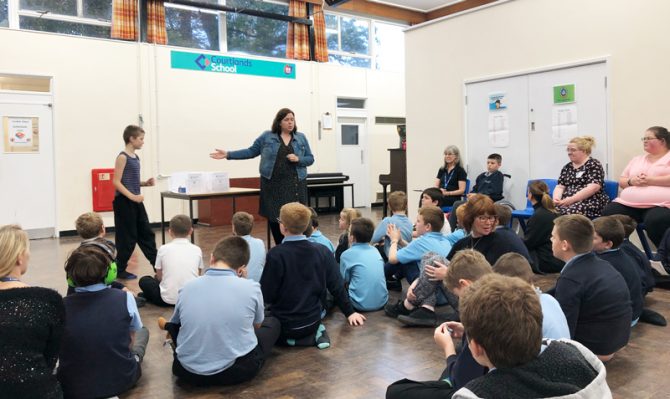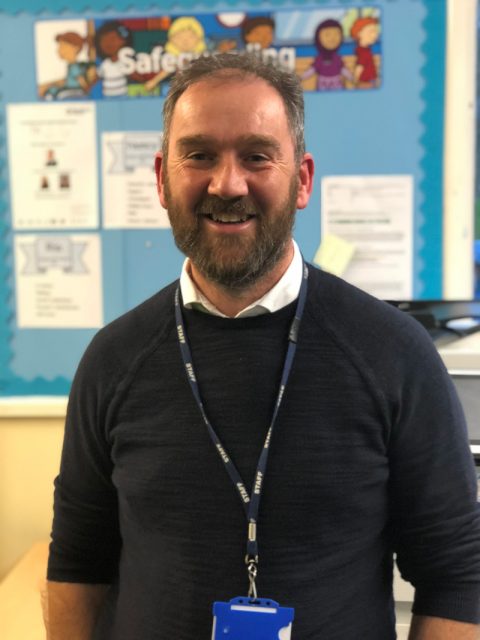ACE Schools Multi Academy Trust, an alternative provision trust in Devon, is developing a new way to provide wraparound family support to get children out of the “downward spiral” of those who’ve fallen under the radar
If you’ve read the recent stories in the media, you’d be forgiven for thinking that alternative provision is a terrifying underworld of knife crime and drug runners. I’m on a whirlwind tour of the southwest’s largest AP provider to test this assumption first-hand.
From a converter pupil referral unit in 2010, ACE Schools Trust now runs 14 sites around Plymouth for children who’ve been excluded and/or have special educational needs. It’s contracted to do home visits to all those identified by Plymouth City Council as being home-schooled, and it provides wraparound education packages to pupils with complex special needs across Devon and Cornwall.
It has also just had a free school approved, but Sarah Gillett, its chief executive, is more occupied with how to provide more wraparound family support to get children out of what Amanda Spielman, the chief inspector, has called the “downward spiral” of those who’ve fallen under the radar. The work has to start at family level, “because nobody gives a toss about the French Revolution if they’ve had to clear up their mother’s substance abuse from the night before”.

To do this, the trust is planning to set up a not-for-profit subsidiary company, ACE Family, to provide complex family support and intervention. “We will be commissioned at cost, it’s not designed to turn a book, we’re all paid by taxpayers’ money,” she says. With Edward Timpson’s review of alternative provision due next year, this could be a model to consider.
Gillett and Paul Winterton, her director of school improvement, have picked me up from Plymouth station and I’m leaning forward in the BMW X3, trying to keep up with what they’re saying over the noise of the engine and the lashing rain. “It’s a vehicle for delivery of a wraparound care element for families and to get the kid back in school, back attending and back achieving. That should always be the common denominator of every family that we deal with.” Gillett strikes me as the kind of woman who would battle a gale-force wind and emerge unfazed.
The trust’s longer-term aim is to add children’s homes to the mix, although legal restrictions could make this problematic. Subsidiaries of academy trusts cannot borrow money without the consent of the education secretary, and the default position is currently to refuse, says Antony Power, a partner at Michelmores, the law firm helping to set up ACE Family. This prevents academy trusts from following the model of social housing providers, which typically use trading subsidiaries to develop private housing then gift-aid any profit back to the main provider.
ACE Schools Trust never turns away a child, and it never permanently excludes. But it does make judicious use of the criminal justice system. “If you do swing at somebody maliciously and you do hurt them, then there is going to be a consequence. That is life,” says the 44-year-old CEO, who has, over a long career in pupil referral units and high-risk residential settings, been stabbed twice and had her ribs, collarbone, and eye socket broken.
Very few young people are born with the propensity to enjoy violence
“I’m no bleeding heart,” is one of her stock phrases. She is someone who cares deeply – something that is shown by the way she talks to and about the children in her care, and by the way they speak about their provision.
Part of the trust leadership strategy is that everyone spends at least a couple of days every term “on the shop floor”. Gillett worked as a teaching assistant on a school trip last summer: “I loved it – probably more than doing the political stuff. It’s not about being super pious but, from a leadership point of view, it’s really important to remain connected with your staff and the young people and their stories.”
She’s no victim, either. “And neither are my staff,” she insists. “If you get hurt, it’s normally because you’re trying to get the young person to go somewhere where they don’t want to go and because they’re in such a state of heightened anxiety they are flitting through the building ready to do something – or you are trying to break up a fight and you put yourself in harm’s way.”
It’s usually the youngest children who lash out, while teenagers are filled with remorse when they realise they’ve hurt a staff member.
“I’ve been doing this for 20-odd years, and I’ve worked with some really, really acutely violent young people, specifically when I was back in residential,” Gillett says. “Very few young people are born with the propensity to enjoy violence. It’s conditioned as a behaviour for defence.”

The trust operates a triage-on-entry system that splits them into 11 different categories. One of the distinctions is between those who are “acting out” and those who are “turning on themselves”, with the latter educated at Dover Road, a specialist mental health base.
Fifteen-year-old Frankie-Jo has been at Dover Road for more than two years. She chats at length about how the school feels like a big family, and how lucky she feels to have been able to stay for so long
Generally young people come and go, as the school works hard to place them back in mainstream. Frankie-Jo, who suffers from psychotic episodes and does regular residential stays in a mental health hospital, arrived in year 9 and will stay through her GCSEs. She’s doing English, science, maths, history, geography, PE and citizenship and wants to be a mental health nurse.
She struggled in mainstream, saying that some teachers lacked patience when she couldn’t concentrate, and pupils made jokes about mental health and suicide. “I didn’t take it well and I got put in isolation. I was in there for months on end, because I was just dangerous, apparently.” Despite her obvious emotion as she tells me her story, she never holds back. Her honesty is disarming.
Teaching resilience is a big part of the job. “One of the main common denominators across all of our young people,” Gillett says, “whether they are with us for mental health issues, teenage parents, kids who are in hospital and are suffering from life-limiting illnesses, is a lack of personal resilience, a lack of self-reliance. I manage what, £15 million, 300-odd people, and a lot of risks. Sometimes I don’t feel like getting out of bed, but you know what? I do. Because you have a word to yourself, put your big girl pants on and get on with it.”
If you do swing at somebody maliciously and you do hurt them, then there is going to be a consequence
The tough love doesn’t stop here. What the trust staff also teach – which is often true for the children that end up in their care – is that they can’t wait for others to sort out their life: they need to learn to rely on themselves. “The first time you try it, you feel a little braver than last time and a little more able to cope,” she says, tiger-mum fashion.
Henry went to six secondary schools before he arrived at Dover Road. He was often agitated in class and would become disruptive, and his mum would get regular calls from schools wanting to send him home.
He’s now going through a diagnostic assessment for ASD and has developed a five-point scale to help him to self-identify when his risk of disruptive behaviour is increasing. At four, the teacher will allow him to step outside the classroom to do a lap of the courtyard or to massage a squishy. “This is the best school I’ve probably ever been in,” says the year 9 pupil, whose enunciation and sentence structure belie his age. “It’s definitely relieved a lot of stress on my whole family. I wasn’t in full-time education for about 18 months.”
Part of the preparation for returning to mainstream – which Henry is determined to do – is learning that life isn’t always fair, that sometimes you just have to lump it. “A teacher can be just as unreasonable as anybody else,” says Winterton as he weaves through Plymouth traffic to deliver me to the trust’s primary special school. “How do you cope with the teacher who’s being unreasonable about why you’re late for the lesson? You don’t argue about it because you’re not going to win.”
Gillett adds: “Sometimes you’ll hear young people say, ‘They didn’t treat me with respect so I didn’t show it to them.’ Well, what’s the truth of the matter? You’re 13. They’re in a position of responsibility. You talk like that to a policeman, what do you think is going to happen? So, what would be a better way forward?”
Emphasising “choices and consequences” rather than a “tariff system” with transgressions linked to specific sanctions, gives the practitioners flexibility when debriefing incidents, Winterton says. “We talk about recovering your behaviour. Yes, you’ve lost your temper, now get it right.”
For some kids, a zero tolerance policy, with strict firm parameters and transparency, is “absolutely the language they speak”, Gillett says. “But the complexities of support around the social emotional need don’t always readily fit into zero tolerance.”
A child with Asperger’s, for example, might struggle with the inflexibility of a zero tolerance policy “just because they are trying to do what they have literally been told”.
It’s not just kids with autism, though – it’s also about allowing enough flex in the system to give the young people a chance to make amends. “When you apply a rigidity to any practice, what it does is disavow you from coming back to use anything else.”
With 85 per cent of the children referred to ACE’s primary AP base progressing to a special school, it’s natural to wonder whether there isn’t something scandalous about the number of children with special education needs who are excluded.
Lee Earnshaw, headteacher at Courtlands, the trust’s primary special school for pupils with social, emotional, mental health (SEMH) needs and moderate learning difficulties, seems to agree, but the waters soon become muddied.
Every child who arrives at ACE Primary is eventually diagnosed with an SEMH need. Some of these needs can be worked through and should not necessarily be considered permanent conditions, Earnshaw says. However, once there’s been a diagnosis, “it’s a protected characteristic, it’s a disability”, he says.
It’s that age-old problem of the fuzzy boundaries between SEMH and SEND.

The problem in getting any child to reintegrate into mainstream is that the special school feels like a safe space. Most pupils will progress from Courtlands to special secondary schools rather than mainstream. “The parents don’t want to risk it,” Earnshaw says – and he doesn’t blame them. The trust does have an outreach team, however, that sends specialists into local mainstream schools to work on behaviour and help to prevent the exclusions in the first place.
With ACE Family, that same support will soon be extended to parents. “It’s not rocket science, when we know that social disaffection is generational. It’s the gift that keeps on giving, isn’t it?” Gillett says. “Quite a lot of parents have had really disruptive and really poor experiences of education, and we really try to turn that on its head. My staff are very personable, and we train them to be like that, because we should have our door open, we serve the community.”














Your thoughts